2021 by the University Press of Kansas
All rights reserved
Published by the University Press of Kansas (Lawrence, Kansas 66045), which was organized by the Kansas Board of Regents and is operated and funded by Emporia State University, Fort Hays State University, Kansas State University, Pittsburg State University, the University of Kansas, and Wichita State University.
Library of Congress Cataloging-in-Publication Data
Names: Burnep, Gregory, author.
Title: Courts at war : executive power, judicial intervention, and enemy combatant policies since 9/11 / Gregory Burnep.
Description: Lawrence : University Press of Kansas, [2021] | Includes bibliographical references and index.
Identifiers: LCCN 2020024368
ISBN 9780700630479 (cloth)
ISBN 9780700630486 (epub)
Subjects: LCSH: Detention of personsUnited StatesHistory. | TerrorismPreventionLaw and legislationUnited StatesHistory. | Combatants and noncombatants (International law)History. | Judicial powerUnited States. | War and emergency powersUnited States. | Executive powerUnited States. | National securityLaw and legislationUnited States. | Detention of persons. | TerrorismPreventionLaw and legislation.
Classification: LCC KF9625 .B87 2021 | DDC 345.73/0527dc23
LC record available at https://lccn.loc.gov/2020024368.
British Library Cataloguing-in-Publication Data is available.
Printed in the United States of America
10 9 8 7 6 5 4 3 2 1
The paper used in the print publication is recycled and contains 30 percent postconsumer waste. It is acid free and meets the minimum requirements of the American National Standard for Permanence of Paper for Printed Library Materials Z39.48-1992.
Acknowledgments
I almost wrote that this project began as a dissertation, but its origins are more complicated than that. My study of American government started at the College of the Holy Cross, where I now teach, under the tutelage of so many extraordinary professors whom I now call colleagues (and friends). In particular, I thank Daniel Klinghard and Don Brand, who taught most of the American government courses I took as an undergraduate. They ignited in me a passion for thinking about American government that has only grown with time. I am also grateful to Ward Thomas, who took me under his wing and made me his research assistant during my sophomore year. Ward showed me the ropes and answered many of my earliest questions about a potential career in academia. Daniel, Don, and Ward were not only wonderful teachers, but also mentors as I struck out on the path to graduate school. I am so lucky to remain the recipient of their patient and thoughtful mentorship even now.
Returning to Holy Cross as a faculty member has been a dream come true in so many respects. For the purposes of completing this project, Holy Cross was an incredibly supportive environment in which to work. I thank the entire Department of Political Science, which is filled with remarkable individuals. Our chairpersons over these past few years, first Vickie Langohr and now Maria Rodrigues, have been especially helpful, always lending an ear to their new tenure-track colleague. I greatly appreciate their leadership and support. Outside my department, Tony Cashman, Ed ODonnell, and Steve Vineberg have been excellent mentors. I also thank the generous donors to the Robert L. Ardizzone Fund for Tenure Track Excellence, which provided financial support during my fall 2018 research leave. And no ode to Holy Cross would be complete without a heartfelt shout-out to my amazing students, whose enthusiasm for studying political science continually energizes and inspires me. They remind me each and every day how lucky I am to do what I do.
My largest intellectual debt was incurred during my time as a graduate student at Boston College. Shep Melnick was the greatest dissertation advisor I could ever have asked for, and I owe him far more than I could ever hope to repay. Shep indelibly shaped the way I think about virtually every aspect of American politics, and no individual has more directly influenced the course of this project than he has. I also benefited greatly from the advice of my other dissertation committee members, Marc Landy and Ken Kersch, whose insightful feedback made this a much more well rounded book than it otherwise would have been. I consider myself very fortunate to have spent six years in the PhD program at Boston College, where so many faculty, staff, and fellow graduate students made it a terrific place to study.
Some of the material from my chapters on military commissions previously appeared in my article Military Commissions and the War on Terror: A Separation of Powers Tug-of-War, Polity , no. (April 2017 ): ( 2017 Northeastern Political Science Association. All rights reserved.). I presented rough drafts of portions of this project at multiple academic conferences, and I am therefore thankful for the feedback I received from fellow panelists, panel chairs, and discussants at annual meetings of the New England Political Science Association (NEPSA) and the Northeastern Political Science Association (NPSA). Especially notable in this regard was a NEPSA round-table on Jeb Barnes and Thomas Burkes Varieties of Legal Order, where I had the opportunity to interact with a number of scholars whose work I greatly admire, including Tom Burke, Rebecca Hamlin, Bob Kagan, Lynn Mather, and Paul Nolette. I am enormously grateful to my editor at the University Press of Kansas, David Congdon, who guided this project along with such great care. Thanks as well to Colin Tripp, who moved it through the production phase to completion, and to Carol Kennedy for copyediting the manuscript. The final product is significantly improved because of the input from two reviewers, Jeb Barnes and Chris Edelson, who read the entire manuscript and offered countless suggestions for making it better. Any shortcomings that remain are certainly my own.
This book is dedicated to my parents, Cindy and Jon, who have given me so much. I love them dearly. So many friends and family members supplied encouragement, laughter, and much-needed companionship at various stages of this process. I can scarcely believe how fortunate I am to have so many wonderful people in my life. It always amazed me how sure they all were that I could actually write a book. The only downside of having such a large cheering section, I have now learned, is the risk of leaving someone out in the acknowledgments section. I wish to give special thanks to my brother, Ben Burnep, and all of my aunts and uncles and cousins. Special thanks as well to the Berrys, the Campolettanos, the Craigs, the Davises, the Johnsons/Sperlings, the Montines, the NeCastros, the Powells, and the Worcester crew. Many other extraordinary people have helped me along the way; they are too numerous to mention but know who they are. Finally, there is Abby. You appeared in the summer of 2019 , as I was putting the finishing touches on the first draft of this manuscript, and you changed my life forever. You were there every step of the way as I finished this book, offering me boundless love and support. Never could I have imagined a more perfect partner. I cant wait to spend the rest of my days with you.
Introduction
On the second to last day of its 2003 2004 term, the US Supreme Court handed down decisions in six cases. Two of these cases concerned Miranda rights, and one dealt with a state courts denial of postconviction relief in a murder case. Henceforth, judges would play a major role in shaping national security policies in what President George W. Bush dubbed the war on terror. After the September , 2001 , terrorist attack, lawyers, lawsuits, and court decisions have repeatedly altered the policy landscape in a variety of policy areas, including detention, interrogation, military trials, surveillance, and targeted killing. After /, lawyers and judges became deeply involved in an armed conflict, with important consequences for presidential authority, the separation of powers, and the treatment of individuals suspected of posing a threat to the United States.

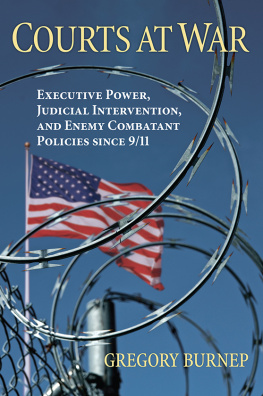
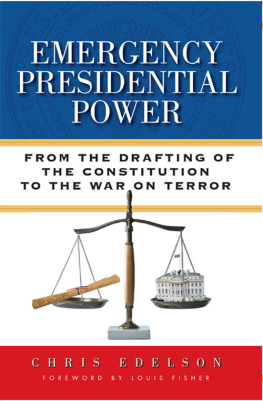
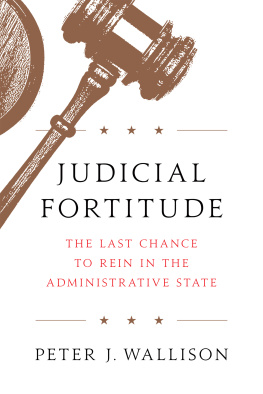
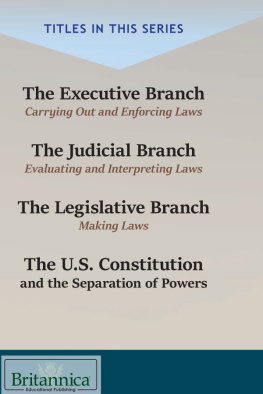
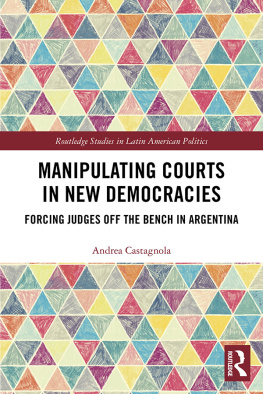
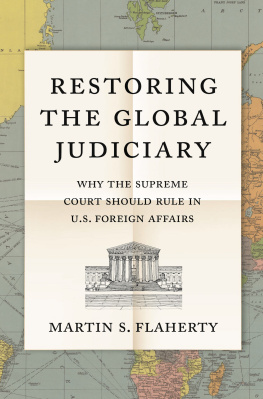
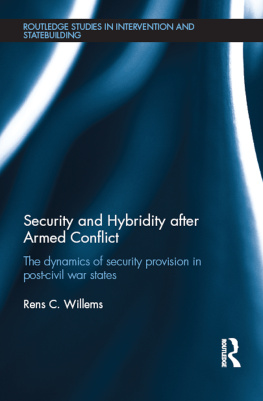
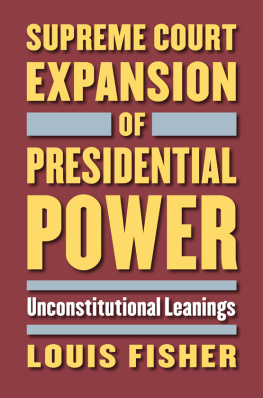
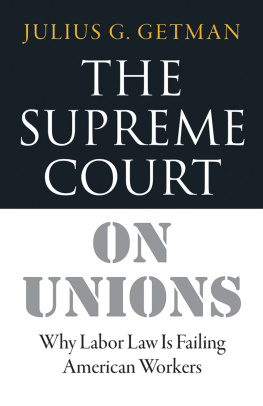
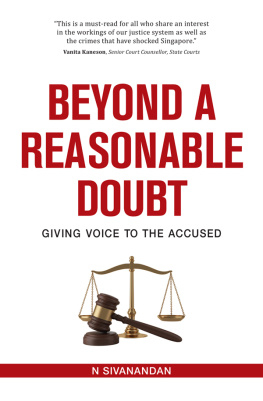
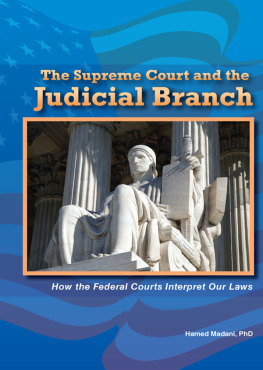

 University Press of Kansas
University Press of Kansas